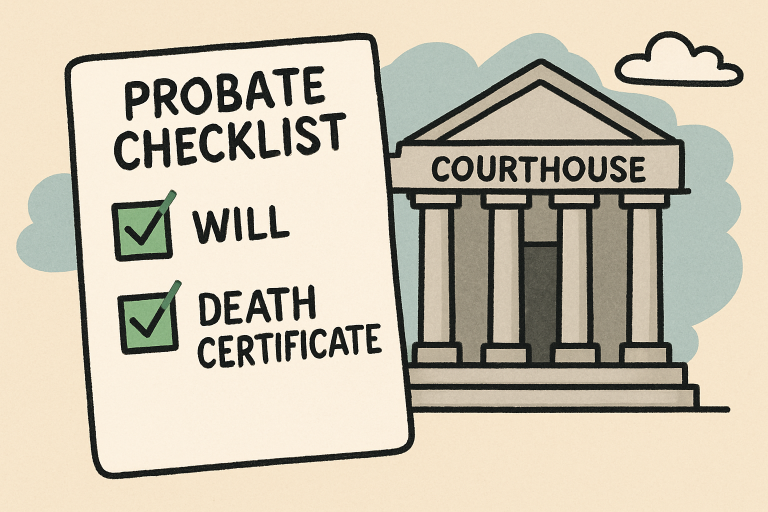What Is Probate and When Is It Necessary?
Probate ensures that a deceased person’s assets are distributed in an orderly, legal manner—either according to a will or by state law when there is no will. When someone passes away, questions quickly arise about what happens to their bank accounts, property, and possessions. Navigating these issues can feel overwhelming for families, especially while grieving. That’s why understanding the basics of probate is crucial. For those living in the state, guidance from a seasoned California probate attorney can help clarify the process, whether you decide to handle probate independently or engage professional legal help.
Probate is typically necessary unless an estate’s assets have been effectively transferred outside of probate—such as through living trusts, joint accounts, or designated beneficiaries. Courts validate the will’s authenticity and grant the executor authority to act on behalf of the estate. This process helps prevent fraud, protects creditors, and ensures beneficiaries receive their inheritance according to legal requirements. For most estates that don’t have qualifying probate-avoidance mechanisms, it’s not something families can skip, but understanding the process and local requirements can make it significantly less daunting.
Understanding the Probate Steps
The probate process unfolds over several structured steps designed to ensure fairness and accuracy. It begins with filing a petition in the appropriate court and notifying potential heirs, beneficiaries, and creditors. Executors or administrators must inventory and appraise assets, settle outstanding debts and taxes, and distribute what remains to entitled parties. While filings and paperwork can be tedious, this transparent process protects everyone’s interests. According to recent reporting from The New York Times, probate caseloads have risen nationally, making clarity about these steps more necessary than ever.
Expect to work closely with the court regarding deadlines and documentation submission. If everything progresses smoothly—no major disputes or irregularities—probate can proceed in months, though complicated or contested cases may take longer. Keeping organized will reduce delays and unnecessary stress.

Key Documents for Probate
- Death certificate
- Original will (if available)
- List of assets and debts
- Contact information for heirs and beneficiaries
- Relevant financial account statements
Bringing together these key documents early in the process helps to avoid repeated trips to the courthouse and speeds up interactions with both the court and involved parties. Detailed records and clear communication ensure questions are answered quickly and obligations are appropriately fulfilled.
Do You Need Legal Help or Can You Go It Alone?
One of the most common misconceptions is that probate always demands an attorney. In reality, not every estate requires legal representation. Smaller estates or those without legal complications (such as family disputes or unusual assets) are often manageable by an organized executor or administrator. Many probate courts provide self-help resources and checklists. However, larger estates, contested wills, or significant debts may introduce complexities that a professional best handles. Data shows that while only about 20% of probate cases involve serious disputes, these can dramatically increase costs and time involved. For an overview of probate basics, visit the Nolo Legal Encyclopedia.
Common Mistakes to Avoid in Probate
- Missing critical filing deadlines
- Not giving proper notice to creditors and beneficiaries
- Underreporting or overestimating asset values or debts
- Distributing property prematurely or incorrectly
These missteps can lead to lawsuits, delays, and additional court hearings. It is essential to keep meticulous records, stay aware of court requirements, and consult reputable resources such as AARP’s estate planning guidance for current best practices. A proactive organization greatly minimizes costly complications.
Alternatives to the Probate Process
Not all assets must pass through probate. Jointly-owned accounts, retirement funds with designated beneficiaries, life insurance policies, and assets held in a living trust are typically exempt. Additionally, states offer alternatives such as small estate affidavits for qualifying estates, which allow families to transfer assets quickly with minimal court involvement. Financial planning and periodic review of account titles can help identify these opportunities and speed up the process for your loved ones. For more on probate alternatives, review the Investopedia probate resource.
Steps for a Smoother Probate Experience
- Gather the required documents as soon as possible after death
- Create a comprehensive inventory of assets and debts
- Communicate openly with heirs, beneficiaries, and creditors
- Stay on top of court dates, deadlines, and mandatory forms
- Consult relevant professionals (such as accountants or attorneys) when needed
This proactive approach can turn an otherwise overwhelming court process into an organized transition, freeing families to focus more on healing than paperwork. Each state’s court typically provides publicly available checklists and timelines, so consult those at every stage.
How Probate Impacts Families
The probate process occurs during a time of grief, compounding emotional strain with legal and financial uncertainties. Families that plan ahead—through open communication, maintaining thorough records, and keeping estate plans updated—tend to navigate probate with fewer conflicts. Clearly stated wishes in wills or living trusts also make it much easier for executors to fulfill their duties and minimize opportunities for disputes.
Educating yourself and your family about probate enables you to manage expectations and avoid unnecessary friction, allowing everyone to move forward with clarity and peace of mind. Taking the steps for adequate preparation today can make an immense difference in the future, lightening the burden for the ones you love.
Navigating probate can be challenging, but understanding the process helps reduce stress for families during a difficult time. Probate involves validating a will, settling debts, and distributing assets according to legal requirements. Proper preparation, clear documentation, and professional guidance can help families avoid unnecessary delays and conflicts. Knowing when to seek legal assistance and how to manage responsibilities efficiently ensures the process runs smoothly. This approach provides clarity, protects assets, and helps honor the deceased’s wishes with minimal complications.








